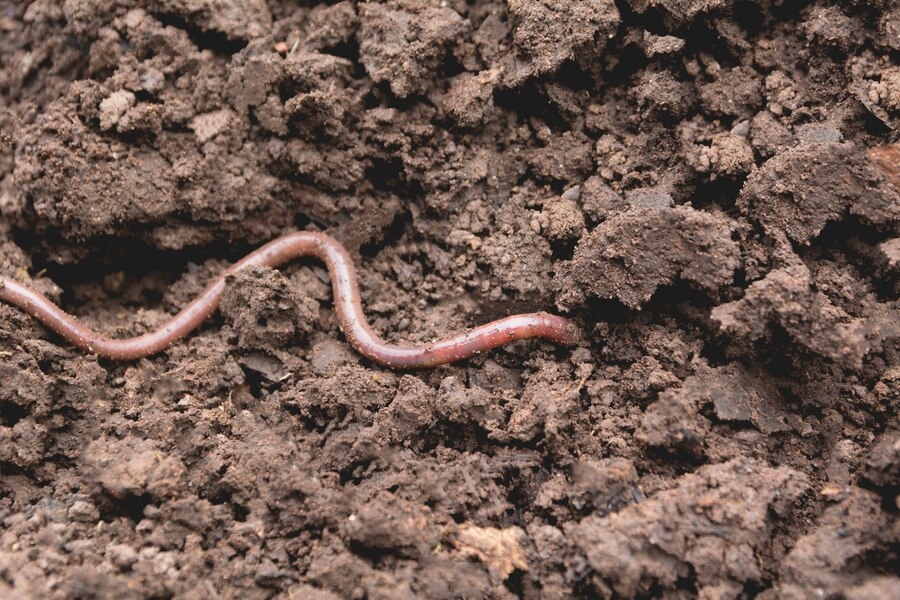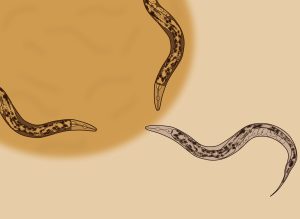We reach more than 65,000 registered users in Dec!! Register Now

PREYING ON HUNGRY, ANXIOUS WORMS
- July 14, 2023
- 15 Views
- 0 Likes
- 0 Comment
Salk scientists discover dopamine regulates worm egg-laying and food-seeking behaviors in response to predation
The life of the tiny worm called Caenorhabditis elegans consists mostly of looking for food, eating food, and laying eggs. So, when any of these behaviors are disrupted, there’s cause for concern. In a new study, Salk Institute scientists discovered that the “feel good” brain chemical dopamine regulates anxious worm behavior in the presence of nipping predators.
“Worms are a wonderful model for studying anxiety because the cause of their anxiety is typically known, like predation,” says Professor Sreekanth Chalasani, senior author of the new work. “Thus, we can use worms to better understand fundamental neural pathways related to anxiety and stress responses that could be conserved across species.”
In this study, the researchers observed what happened when a predator worm species (Pristionchus pacificus) nipped at the worms, discouraging the worms from eating the food source. In response, the worms moved away from the food source, and the predators were able to eat more. Additionally, the worms also laid their eggs away from the old food source and the threat of predation.
The researchers noticed that the worms would stay away even after the predators had left—indicating the worms were learning that it was safer to stay away. Furthermore, the behavior of laying the eggs far away from predators was regulated by dopamine. But when the researchers blocked dopamine pathways in the worms, they did not avoid predators as frequently to lay their eggs.
Additionally, the researchers explored how the presence of smaller patches of food away from the main food source impacted worm-predator interactions. While predators were busy monopolizing a main food source, the presence of alternate (albeit smaller) food sources elsewhere made the worms more likely to avoid predators.
In the future, the team will examine the role of another brain chemical called serotonin in this evasive behavior, since serotonin is known to regulate other dopamine-dependent behaviors, like searching for food. They also hope their study serves as a springboard for future inquiry into the impact of other brain signaling pathways that influence feeding, reproduction, and other behaviors.
“By looking at worms, you capture so much intricate biology in an animal that has evolved over billions of years,” says Chalasani. “Any insight—even in worms—into the mechanisms of predator-prey behaviors enriches our understanding of so many other phenomena that exhibit this biological push-pull relationship, like the co-evolution of animals and their environment or the delicate balance of chemical conversations between cells.”
List of Referenes
- Michael A Rieger, Amy Pribadi, Kaila Rosales, Kirthi C Reddy, Sreekanth H Chalasani. Dopamine signaling regulates predator-driven changes in Caenorhabditis elegans’ egg laying behavior. eLife, 2023; 12 DOI: 10.7554/eLife.83957
Cite This Article as
No tags found for this post









